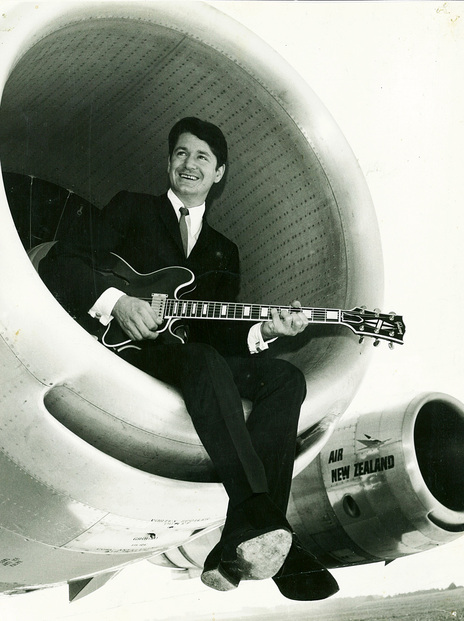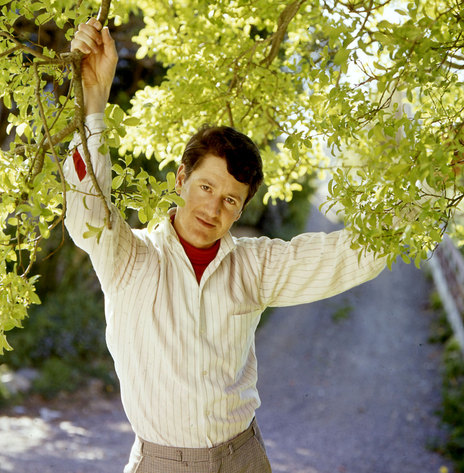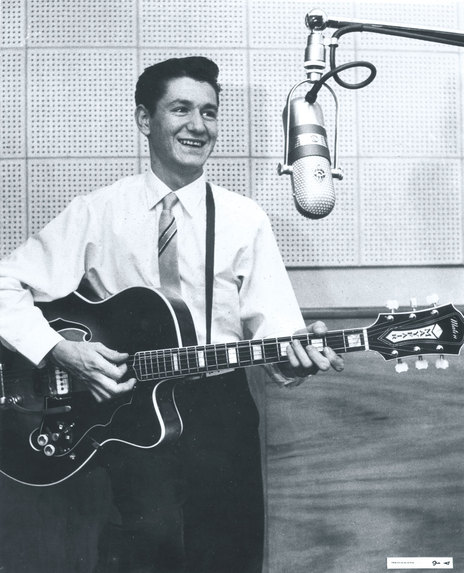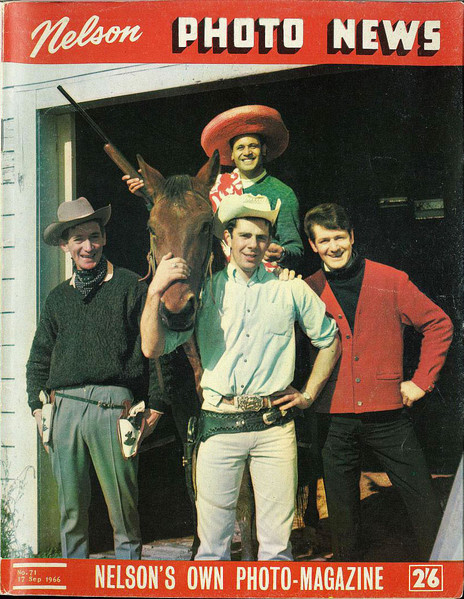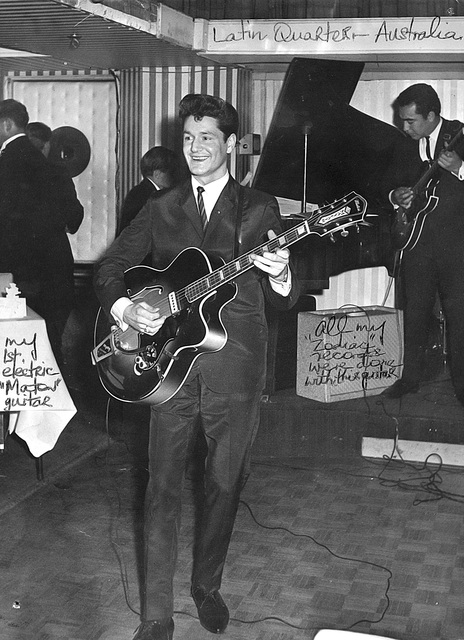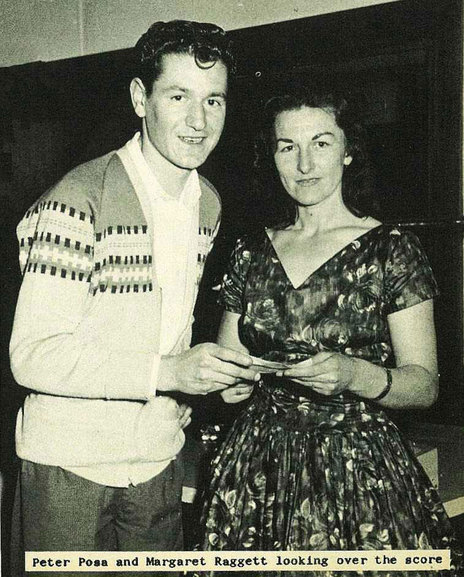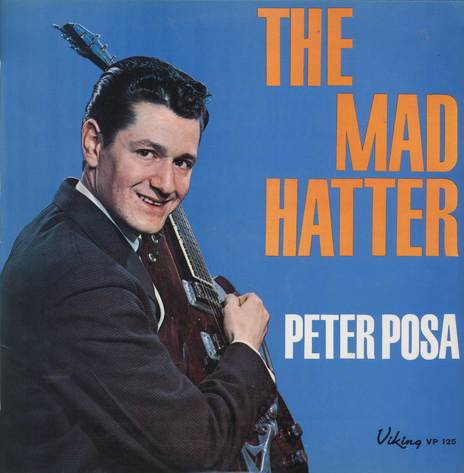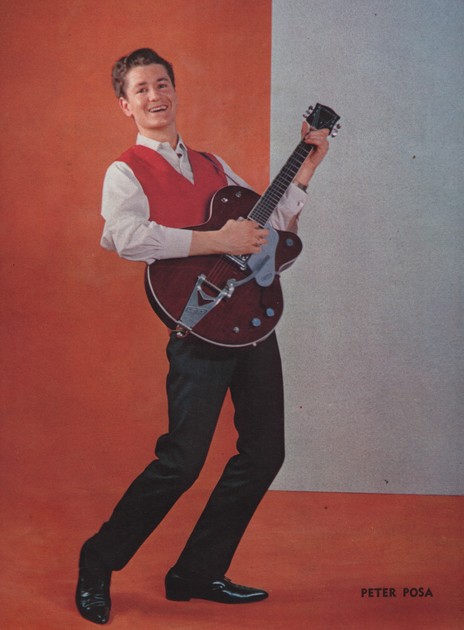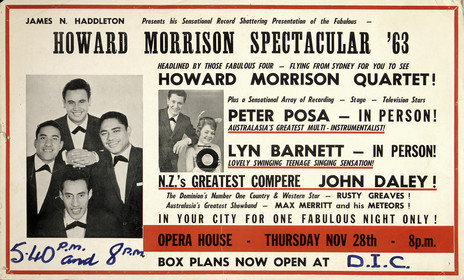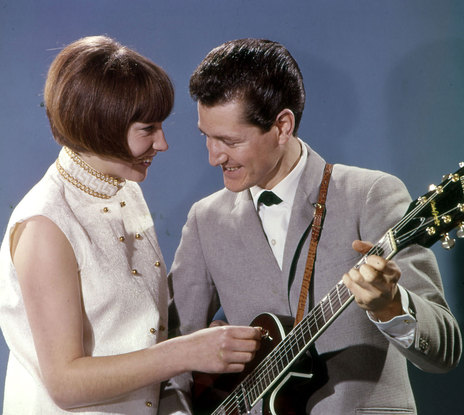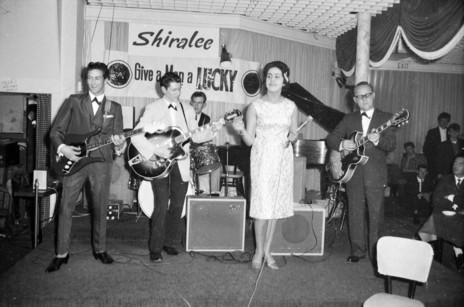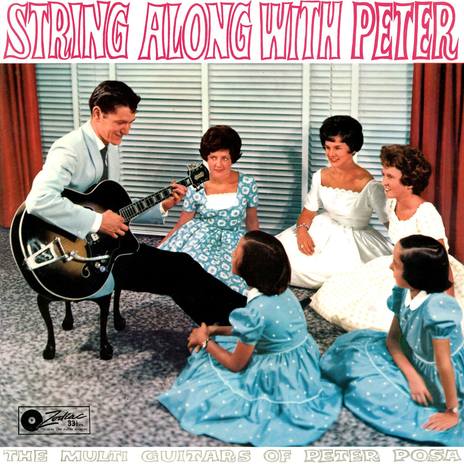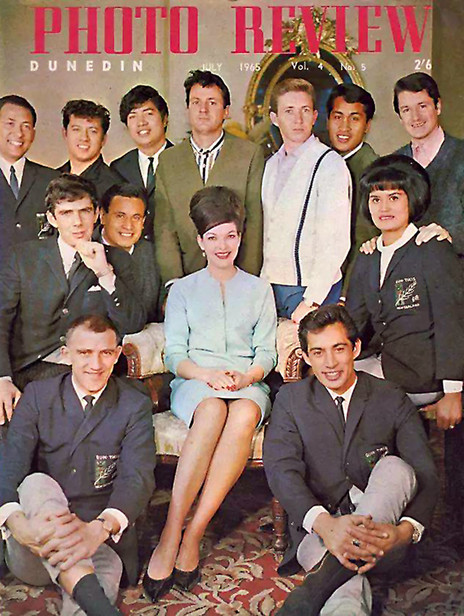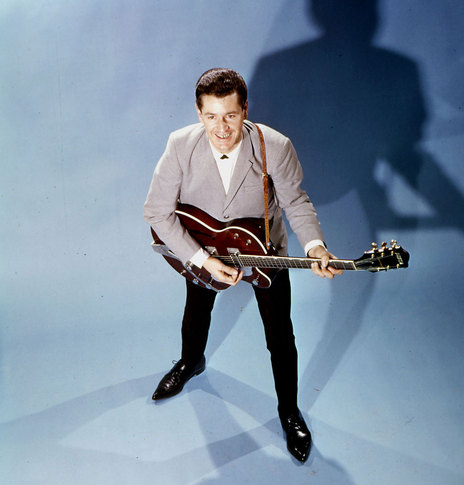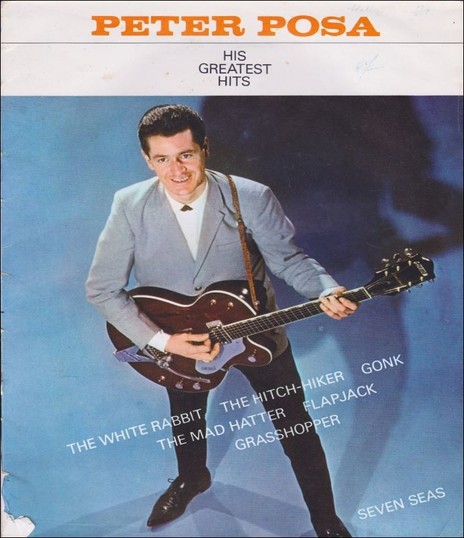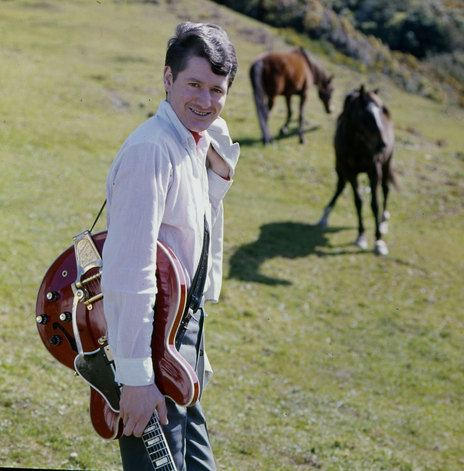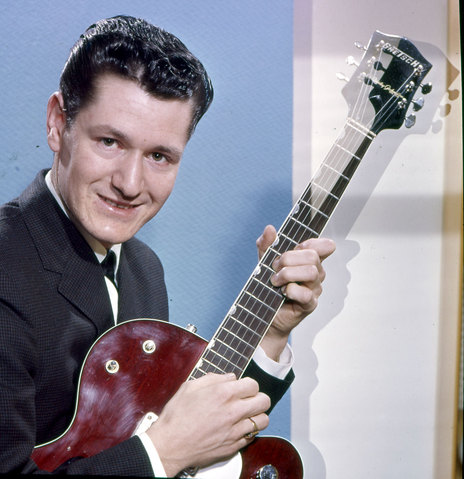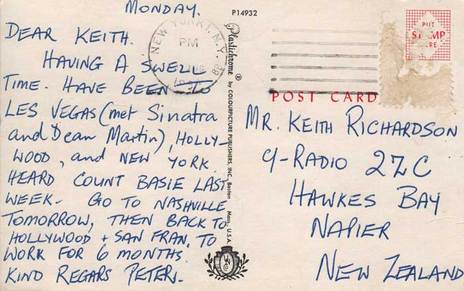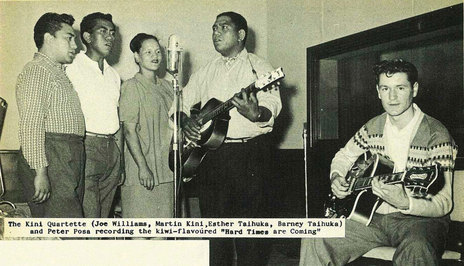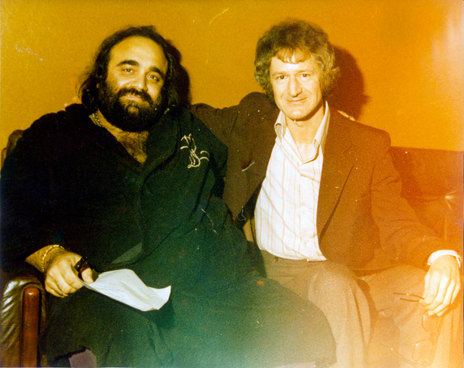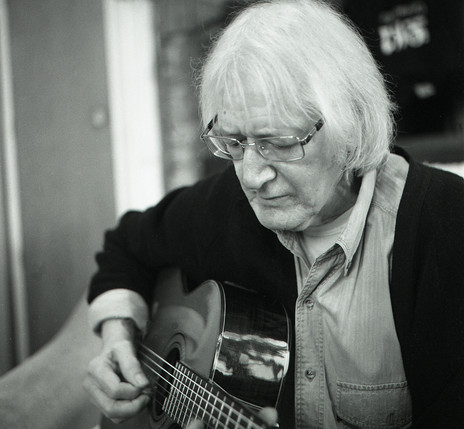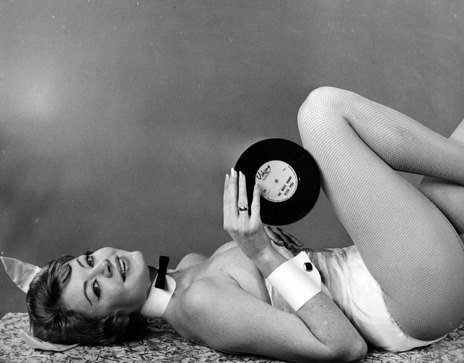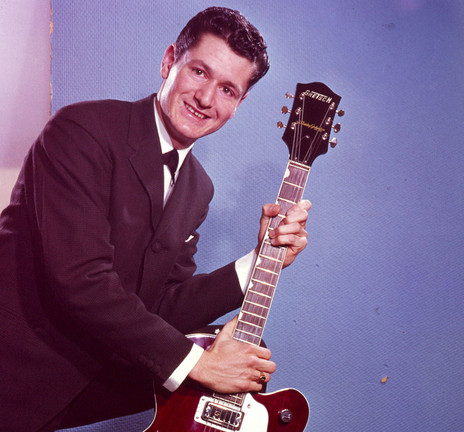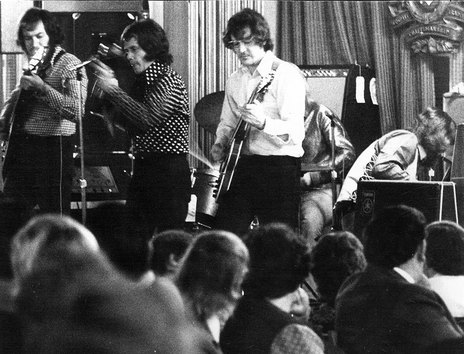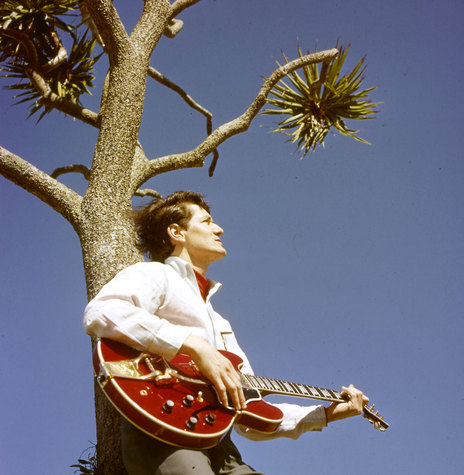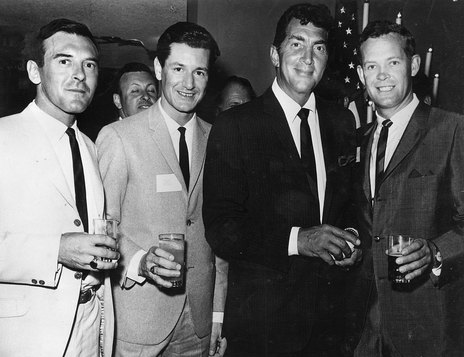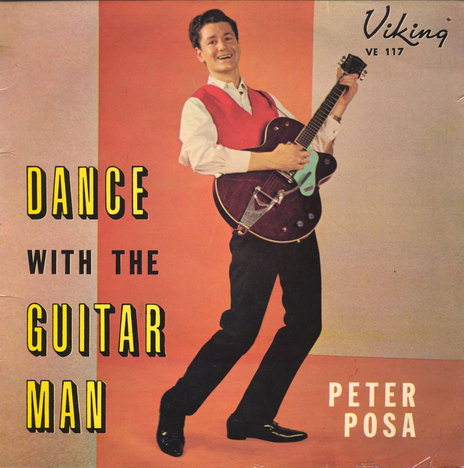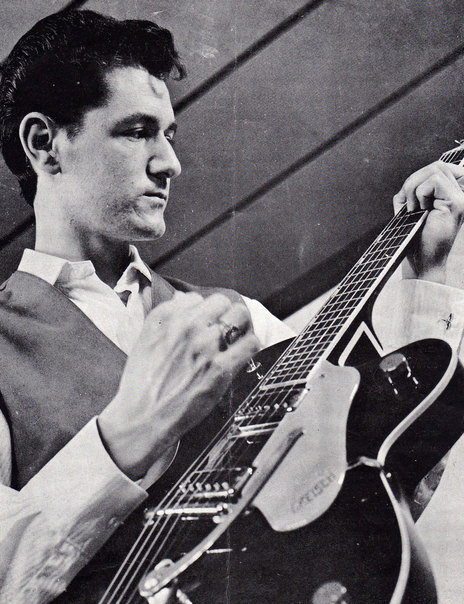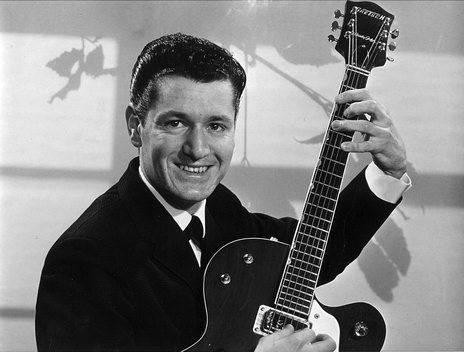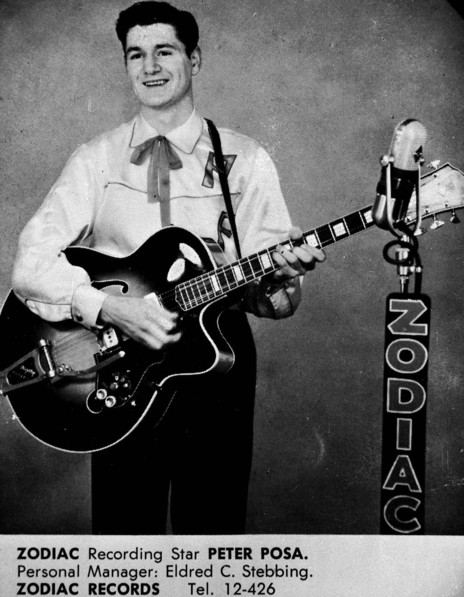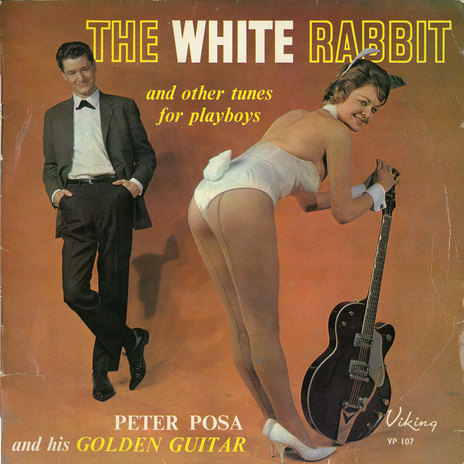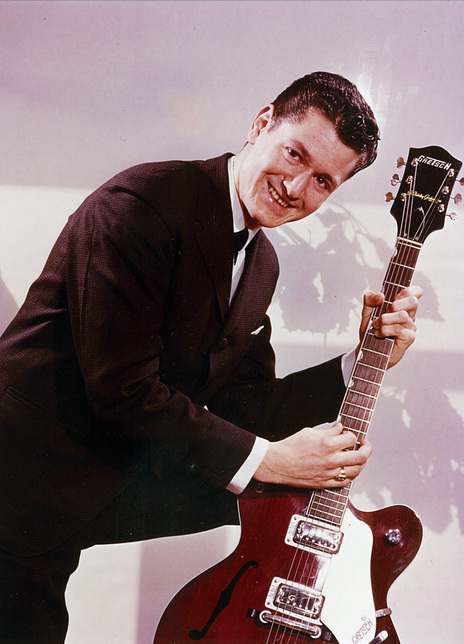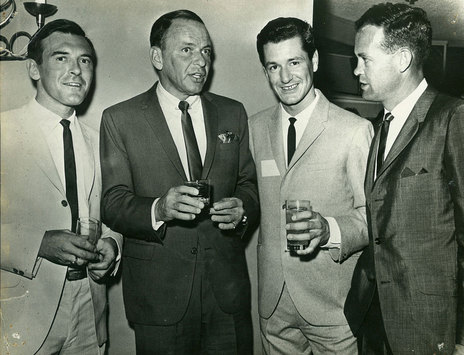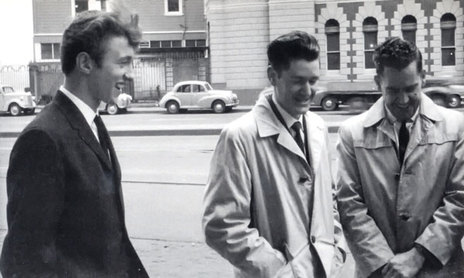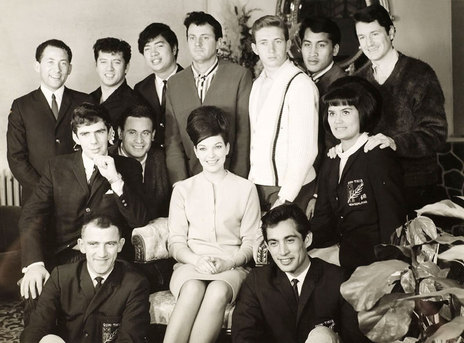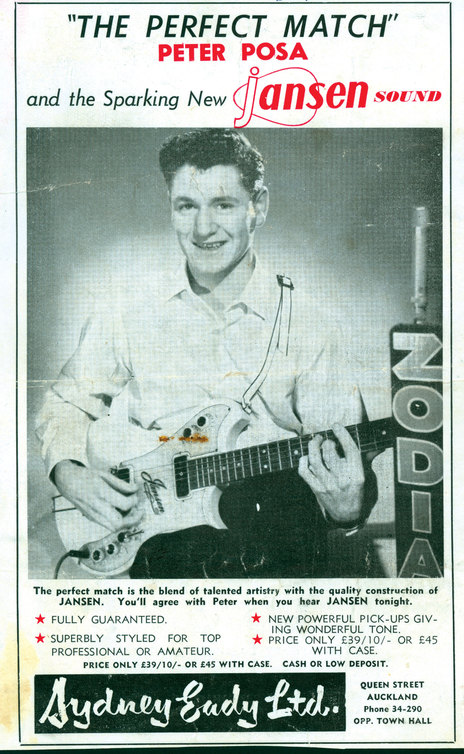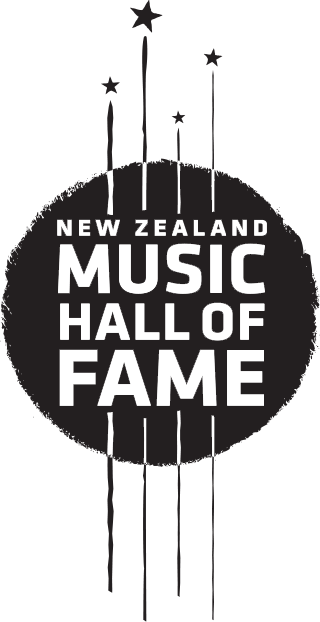Posa received his first real guitar on his ninth birthday, a Galatone, an obscure South African make, aimed at beginners. “As a family we would often visit my aunty who lived in Hobson Street in Auckland's CBD, there was a music store a few doors down from my aunty’s,” he told me. “The Galatone was in their window, I would stand outside looking at it in the shop window while the olds would be sipping tea and telling stories from the old country. I would constantly bug Mum and Dad about my next birthday.
"They eventually relented and we all went into the shop to buy it. It was a lumbering beast of a guitar and the man behind the counter jokingly commented that I was such a small boy that he would only sell it to me if I could play it. I played him ‘Buttons and Bows’ – he was impressed.”
Posa’s new guitar became his best friend, they became inseparable – after all they were both the same size and, as he recalled, “We went everywhere together, down to the letter box to get the mail, family outings, I would always gently place it under the bed at night.
“Being of Croatian descent there were always social gatherings which always turned into singalongs, and I would always play along with the menfolk. There would be guitars, piano accordions, violins, steel guitars and various traditional instruments.
“I was listening to a lot of country and western music on the radio: Hank Williams, George Jones, Tex Morton, and Cole Wilson and The Tumbleweeds. I also loved playing my brothers’ records, which consisted of Glenn Miller and Frank Sinatra among others, so I always had lots of music and influences around me.”
Guitar lessons with Walter Smith “didn’t work out too good ... I was scared stiff of him.”
Originally self-taught, Posa started taking lessons primarily to learn the chords. It was a bittersweet experience, he said. “I booked 12 lessons with Walter Smith, who was rather famous for writing the song ‘Beneath the Maori Moon’. He had an office above Lewis Eady’s in Auckland's Queen Street. The lessons didn’t work out too good, he was a good teacher and I admired him immensely – but he was very old school and I was scared stiff of him. If you made a mistake he would yell at you, so I left after about five lessons.”
Posa’s brothers Boris and Walter would bundle him into the family car and drive him around all the different talent quests that were a staple form of the entertainment scene in New Zealand's pre-television culture. Posa constantly struggled with shyness as a teenager. “I found it hard to face the audience and I would sometimes play side on and face the stage door, but I did come second on the radio show version of Have A Shot on 1ZB, playing ‘Guitar Boogie’.”
By the time Posa was 18 he had became interested in the multi-tracking guitar style of Les Paul and formed his own band, The Peter Posa Combo. Being able to play most styles of music for any type of function, the group became popular in West Auckland.
As their local popularity grew, Posa was called aside by his boss at the New Lynn Public Service office and told in no uncertain terms that playing in bands wasn’t a good look for public servants. If he continued down that path then his chances of promotion would be very slim. “I don’t know what he wanted me to do, chop my hands off?”
This was the motivation that Posa needed to pursue his dreams of becoming a professional musician. His combo auditioned for Eldred Stebbing, of Zodiac Records. “When we arrived for the audition Eldred was reading a technical magazine, he kept reading it during the audition and when we had finished he politely told us that we weren’t up to a satisfactory recording standard. This shook me a bit and I thought ‘Right, I'll show you’. So we went back to the drawing board and practiced and practiced.
“We managed to get another audition a short time later and lo and behold it was the same result really, minus the magazine”. This time Eldred took Posa aside and told him that the combo wasn't up to a good enough standard or different enough, but that he saw enormous potential in Posa as a solo guitarist.
Posa was taken aback. “I never saw myself as a solo act. I liked being in a group situation. After a bit of thought, I shook hands with Eldred and he became my manager and record label. I then had the unenviable task of telling the combo. A couple of the guys were pretty hot with my decision and threw a bit of abuse my way. The others accepted it and we kinda broke up, to put it mildly.”
His debut release was ‘Sweet Georgia Brown’/ ‘Some Of These Days’, which came out in late 1960.
Posa’s third single, released in 1961, was his version of ‘Wheels’ (originally by the American band The String-A-Longs), which reputedly went on to sell over 50,000 copies, making it the label’s biggest seller at the time.
2,000 people tried to cram into Woolworths’ Auckland store for an in-store promotion by posa.
To underline the record’s massive popularity the lower part of Auckland’s Queen Street came to a grinding halt when 2,000 people tried to cram into the Woolworths downtown store where Posa was giving an in-store promotion for the record.
To capitalise on Posa’s growing popularity he and Eldred would embark on a series of weekend gigs around the top half of the North Island. They would pile into Eldred’s brand-new Ford Zodiac and drive to various venues for 45-minute guest slots in up to four different clubs a night.
“It was good to have Eldred on those jaunts around the country, we would spend the whole journey talking about music. We didn’t use a backing band: Huh, who needs a band? was our mantra. Eldred would lump a big tape recorder around from gig to gig with the backing tracks on it and I would play along with it. This was reasonably successful until one early evening gig in Wellsford when halfway through the set all of the cow cockies started milking their cows roughly at the same time and we were down to half power and the tape starts slowing down and all of a sudden I am out of key. Talk about embarrassing for us, possibly the two biggest perfectionists in the whole country at the time. The audience thought it was a great joke as I constantly re-tuned my guitar between songs. We started looking for a band after that.”
Posa’s debut album String Along With Peter Posa was released on Zodiac Records in September 1962. “Eldred and I worked really well together on the album. Because of my percussive style we only used drums on about four tracks.” A review in Playdate magazine in October 1962 said “The new Posa LP is a triumph for all concerned including Auckland electronics wizard Eldred Stebbing, who has dubbed the tapes one on top of the other in such a way that Peter sounds like the famous 76 trombones of The Music Man in guitars.”
After 11 singles and an album for Zodiac, Posa signed a three-year contract with Viking Records, who offered creative freedom and a publishing deal. His second release for his new label was ‘The White Rabbit’ which instantly made Posa a household name in New Zealand, the Pacific Islands, and Australia, where it was a Top 20 hit.
To capitalise, Posa headlined his own national tour with Bill & Boyd and Max Merritt and The Meteors. A quick succession of hit records followed, including ‘The Mad Hatter’, ‘Grasshopper’, ‘Hitch Hiker’ and ‘Gonk’ – the latter penned by Posa himself as a tribute to the fluffy kids’ doll that was popular at the time.
During this period of high demand and popularity Posa worked every night of the year except for two. Viking Records boss Ron Dalton and Posa’s manager Jim Haddleton secured an American release for ‘The White Rabbit’ and arranged for Posa to spend six months in the US, touring, recording and promoting the record. It was an exciting journey for Posa and he was given the opportunity to work in some of the world’s most famous studios, meeting some of the American artists that he most admired, including his hero Chet Atkins.
RCA offered Posa a job as a studio musician at their Hollywood Studio, but he turned down the offer, partly because his work visa was due to expire but primarily because he was becoming increasingly homesick.
Even though Billboard had given ‘The White Rabbit’ a B-plus rating, success had been limited in the States due to a lack of promotion by his US label Vee Jay Records, which was on the verge of bankruptcy.
Posa continued to tour New Zealand, Australia and the South Pacific, where his popularity continued on the back of a staggering 17 albums, 15 EPs, and 13 singles during his three-year Viking period, making him our most prolific recording artist during the 1960s. His popularity was so immense in the Pacific Islands that he was anointed as an honorary chief in Fiji and was constantly referred to as “King Peter”.
In 1966 Posa returned to Stebbing’s Zodiac label where he stayed throughout the late Sixties and early Seventies, recording at a more sedate pace. Posa’s first album after returning to Zodiac was Internationally Yours. “I recorded it in a small studio out west somewhere. Eldred arranged for one of his groups, the soul band The Action, as the backing band who were great to work with but the overall sound wasn’t up to a standard that I was happy with. It was recorded in a one-night, single session and because I was leaving for a tour to New Caledonia the next morning there wasn’t any time to re-record anything. I wasn’t happy and at one stage considered buying every copy from every shop in the country and ceremonially smashing them all.”
A car accident in 1970 resulted in long-term health issues for Posa, eventually sidelining his music career.
A car accident in 1970 resulted in long-term health issues for Posa, eventually sidelining his music career, which ground to a halt in the middle of that decade. He would not record again until the end of the 1990s.
His composition ‘Rose (Can I Share A Bed With You)’, as recorded by Toni Williams, achieved gold record status after becoming a hit in 1976.
Posa was made a Member of the New Zealand Order of Merit for services to entertainment in the 2008 Queen’s Birthday Honours List. It was a title he was very proud of, and a photo of him receiving the award adorned his lounge wall. The award was the only public display of fame from his illustrious career.
In 2012 Sony Music released White Rabbit – The Very Best Of Peter Posa which claimed the No.1 album spot for six weeks, making it the second longest running No.1 album of 2012.
At the 2013 New Zealand Music Awards, Posa took out the award for the biggest selling New Zealand album of 2012-13. Not bad for a catalogue of songs dating back more than 40 years.
After several years of illness, and a stroke in 2015, Posa’s life changed. The stroke had rendered his hands unable to play guitar, although he exercised them daily with minimal results. In some ways Posa saw the stroke as a blessing: being unable to play guitar, he didn’t agonise over the constant search for perfection. Instead it made him appreciate the world around him as he spent large parts of every day on his rural Te Awamutu property, staring and admiring mother nature at work in the valley below as he lay in a hospital bed in his lounge.
Occasionally during his last years he would wander into his music room which overlooked the majestic Kakepuku Mountain and dabble with his guitar. His music room consisted of a few industry awards and a couple of acoustic guitars, “I have given all of my guitars away over the years,” he said. People, mostly fellow church members, would ask if they could have one including my prized Gretsch collection, I was always happy to oblige”.
Peter Posa passed away at Waikato Hospital on 3 February 2019. A year before he died, he mentioned to a friend that, despite the high profile of ‘White Rabbit’, his own favourite song of those he recorded was ‘Terry’. Originally a hit for English popette Twinkle, Posa’s version appeared on the B-side of the single ‘Do You Want To Dance’, which featured his new discoveries at the time, his neighbours The Chicks. It is also on his 1965 LP Beat Guitar, credited to Peter Posa and His Golden Guitar. His Gretsch, Maton and other guitars were certainly golden.
Tributes immediately flowed as news of Peter Posa’s death circulated among fans. Among them was guitarist Richard Kennedy (of The Country Flyers and The Drongos), who often performed ‘White Rabbit’ as a solo tribute. He wrote to AudioCulture: “Peter really knew how to squeeze a tune out of a guitar – not easy. Not a spare note in sight, and rarely a blue one. His clean and perky style hooked me from day one. An entertainer in the best tradition.”
On 22 October 2020 it was announced that Peter Posa was inducted into the The New Zealand Music Hall of Fame.
--
Read: Peter Posa, hostage to the beat – a 1998 interview
